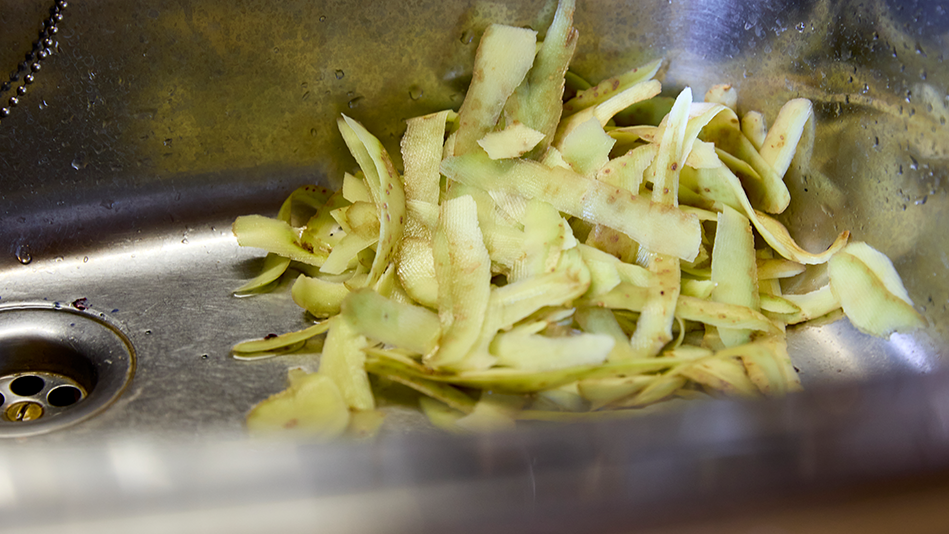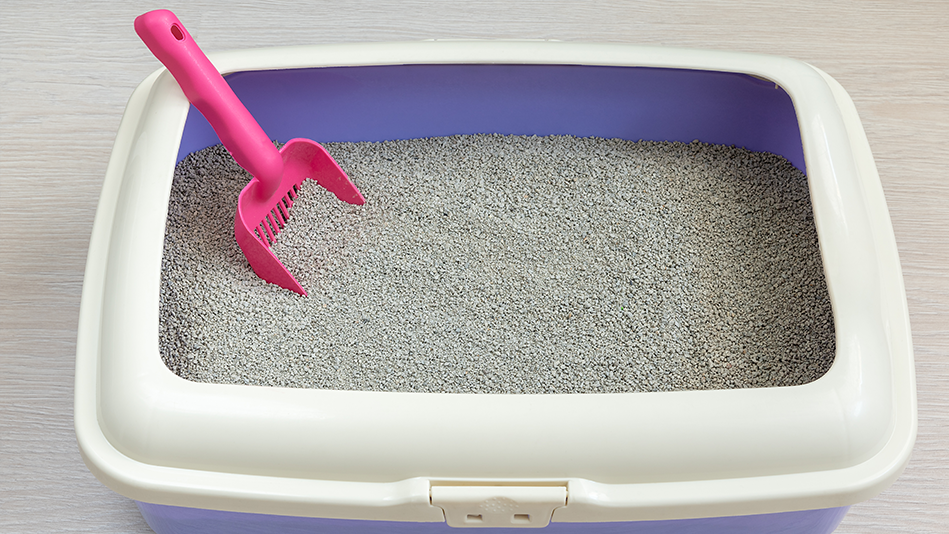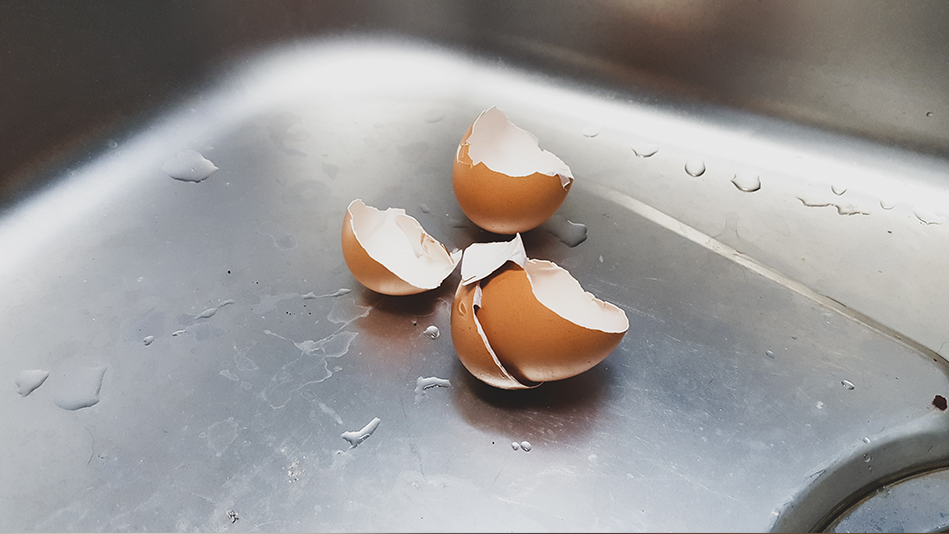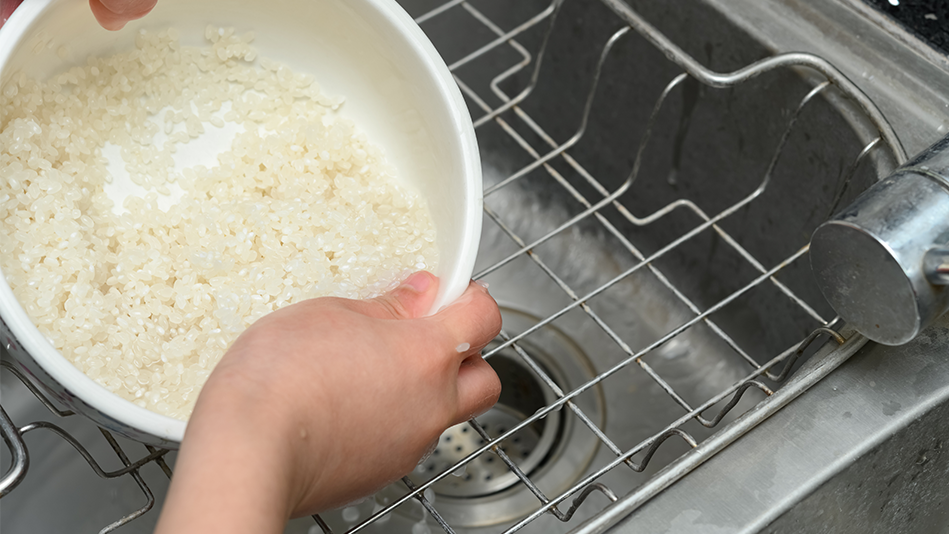Your home’s plumbing system might seem like a good option for getting rid of waste, but don’t let the ‘pipedream’ fool you: Sending any of the following items down your sink’s drain (or any other part of your plumbing) only spells T.R.O.U.B.L.E, because it often leads to clogged drains and other plumbing problems that require costly repairs.
Here's how you can avoid T.R.O.U.B.L.E. at your home and keep your plumbing system clog-free.
T: Toxic materials
Toxic materials are anything that can get into the surrounding soil or local water supplies and cause illness if consumed. This isn’t even taking into consideration the damage some of these could do to your pipes! If it’s toxic, don’t pour it down the drain: Read the instructions included on these items for safe and responsible disposal.
- Paint
- Motor oils
- Solvents
- Medications (safe for the prescribed individual; not safe for others)
- Household cleaners
R: Rinds and pits from fruit
While some sink garbage disposals can hack up fruit rinds, you still risk the more fibrous bits wrapping around your disposal parts, causing extra wear and tear—and fruit pits are just asking to damage your disposal blades. We recommend either composting or trashing these inedible items.
O: Oils, fats, and grease
Putting oil and grease down your drain is never a good idea. While they flow smoothly as liquids, oils, fats, and grease all solidify as they cool down, forming clogs in your pipes that are difficult to remove. Even if you pour boiling hot water down the drain, buildup might only move a little further before hardening again, which could make things more complicated. It’s best if you let these items cool down and solidify before putting them in the trash.
U: Unflushable items
Despite how they’re marketed, flushable wipes are well-known for causing plumbing problems and should never be flushed down the toilet. While many products claim to be ‘flushable’, certain items like cat litters and ‘flushable’ wipes, are much better off disposed of in your garbage can. Not only can these absorbent items increase in size and clog your pipes, they often contain chemicals and toxins that can be dangerous in the water supply.
Careful with the cat litter
Cats carry a parasite called Toxoplasma gondii. While not harmful to the felines themselves, this parasite is passed on through a cat’s feces and can be transmitted into the public sewer system and water supply. This causes serious danger to those who are sensitive to it, resulting in anything from headaches to seizures, and even comas.
Feminine hygiene products
Don’t flush feminine hygiene products down your toilet. Not only are they clog-creating materials, they can introduce plastics and/or latex into city water systems that can eventually lead to our lakes and oceans. Smaller bits of plastic look pretty tasty to our fishy friends—and they can be deadly to consume.
B: Bones and eggshells
While it might be tempting to wash those smaller chicken or fish bones down the sink, it will eventually cause problems. Your garbage disposal isn’t designed to take on bones, and any bones that make it past the disposal can easily get stuck and start a clog in your pipes that’s nearly impossible to dislodge.
Eggshells are another popular item to wash down the kitchen sink drain, but we don’t recommend it: The membranes in the shells can wrap around your disposal machinery and cause it to work harder and wear down faster. Even small pieces of shells can build up and attach themselves to other food waste, clogging your drains faster.
Both of these items can be useful for composting, but are just as good for the garbage can.
L: Letters (or any paper items)
Most people probably don’t use their disposal as a paper shredder. But paper is still a major problem when it comes to your plumbing.
Fruit and vegetable stickers are just one culprit that often gets overlooked. The adhesive on the back can stick to your pipes (eventually causing a clog), and even if the adhesive wears off, the paper itself can expand and cause problems.
This is exactly why paper towels and tissues are a no-go as well. While toilet paper is designed to disintegrate after a while, paper towels are created to do the exact opposite and hold together, which makes for a fast clog if you try to flush them down your toilet.
E: Expandable Items
Simply put, these are items that expand when they get wet—they have a nasty habit of clogging drains when washed down the sink or flushed down the toilet. These can all be used in composting* or thrown away.
- Coffee grounds
- Pasta/rice/bread
- Flour (Water and flour make glue, after all)
- Cotton balls, cotton swabs, or Q-tips (*Only compost these if they are pure cotton with no chemicals)
Already in T.R.O.U.B.L.E. with a clog?
If your pipes are backing up or overflowing, make sure you know how to shut off the water at the source with our Need-to-know Plumbing Tips.
Visit us on Facebook, LinkedIn, Twitter or Instagram to tell us your thoughts!




